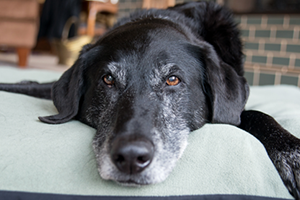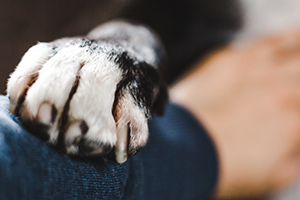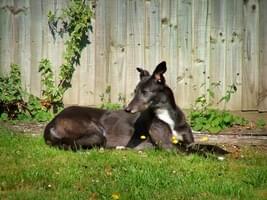It’s no surprise that staff at Dogs Trust, the UK’s largest dog welfare charity, have their hands full right now. We spoke to Adam Clowes, Operations Director at the charity, to find out a bit more about kennel life in lockdown.
“For our dogs, life hasn’t changed and they’re getting the same love and care as before! The biggest impact has been on our rehoming centres, as we have a smaller number of staff available. They’re cleaning kennels, managing mealtimes and walking the dogs, all while social distancing. Our teams are incredibly inventive with training, health and welfare tips and socialisation games to keep our centre dogs stimulated and socialised, all in preparation for when restrictions are eased and we can get them to their new homes. They are also providing valuable support through videos on our website and social media for dog owners in the community, who need to help their dogs adjust to this new way of life.”
Like so many other rehoming organisations, Dogs Trust has had to adapt quickly to a new process for rehoming some dogs, freeing up valuable kennel space for any dogs that urgently need support as a result of this crisis, or that Dogs Trust has already promised to care for. For example, that might include dogs whose owners hold a Canine Care Card, a pre-existing agreement with the charity so that Dogs Trust will care for the dog if anything happens to the owner.
Working alongside other rehoming organisations, Dogs Trust has now adopted a new rehoming procedure, where some dogs are “virtually matched” with potential new owners. If a dog can’t be matched or if they need a very particular home, they will stay at the centre until they can find their perfect forever home.
Meanwhile, at Dogs for Good, Chief Executive Peter Gorbing describes the uncertainty around the impact that lockdown will have on the training of service dogs. “A hugely important part of [our dogs’] training is socialisation. Normally, we’d be taking them into town, into shopping malls, on buses – all sorts of things that aren’t appropriate at the moment. How this will affect our dogs as we come out of lockdown, we don’t know yet, but we do anticipate some negative effects.
“We’re doing everything we can to work alongside our puppy socialisers to find innovative ways to give our dogs the experience of different environments, noises and smells, while providing brain-training exercises to keep their minds active. Our team is doing a huge amount of virtual support work with volunteers who have puppies and dogs in training, to help them manage their individual situations and keep up some of their training.”
Like many small charities and animal shelters, the Perthshire Abandoned Dogs Society (PADS) has temporarily paused rehoming. “We’re cautious about rehoming in a time like this. That’s both to protect our staff and for the same reasons we don’t rehome at Christmas,” explains PADS chairwoman Dr Alison Kennedy. “While rehoming a rescue dog can seem like a good idea while you’re spending a lot of time at home, when it’s time to go back to work people may find they’ve made a mistake.”
The centre is still taking in dogs who need their help, despite the lockdown throwing a spanner in the works. “Unfortunately, we were in the middle of renovating our quarantine block when lockdown was announced and our contractors had to leave. Luckily, we still have half of the block available to house strays and new arrivals.”



